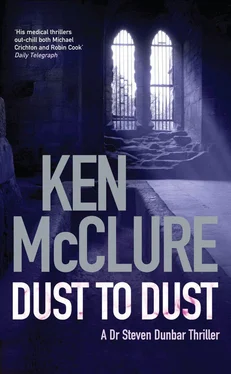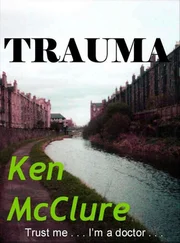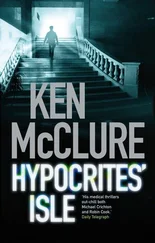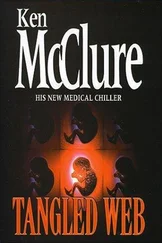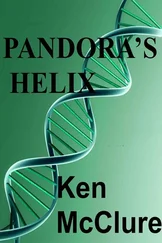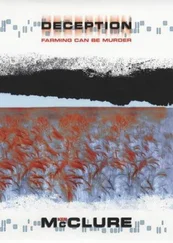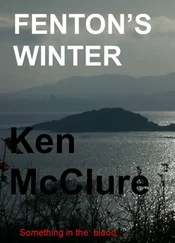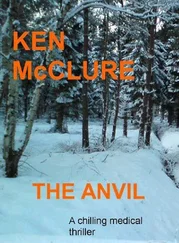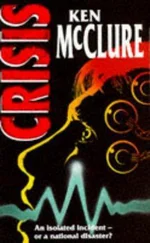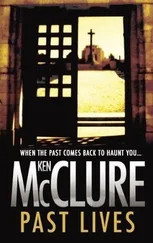Ken McClure - Dust to dust
Здесь есть возможность читать онлайн «Ken McClure - Dust to dust» весь текст электронной книги совершенно бесплатно (целиком полную версию без сокращений). В некоторых случаях можно слушать аудио, скачать через торрент в формате fb2 и присутствует краткое содержание. Жанр: Триллер, на английском языке. Описание произведения, (предисловие) а так же отзывы посетителей доступны на портале библиотеки ЛибКат.
- Название:Dust to dust
- Автор:
- Жанр:
- Год:неизвестен
- ISBN:нет данных
- Рейтинг книги:5 / 5. Голосов: 1
-
Избранное:Добавить в избранное
- Отзывы:
-
Ваша оценка:
- 100
- 1
- 2
- 3
- 4
- 5
Dust to dust: краткое содержание, описание и аннотация
Предлагаем к чтению аннотацию, описание, краткое содержание или предисловие (зависит от того, что написал сам автор книги «Dust to dust»). Если вы не нашли необходимую информацию о книге — напишите в комментариях, мы постараемся отыскать её.
Dust to dust — читать онлайн бесплатно полную книгу (весь текст) целиком
Ниже представлен текст книги, разбитый по страницам. Система сохранения места последней прочитанной страницы, позволяет с удобством читать онлайн бесплатно книгу «Dust to dust», без необходимости каждый раз заново искать на чём Вы остановились. Поставьте закладку, и сможете в любой момент перейти на страницу, на которой закончили чтение.
Интервал:
Закладка:
‘So you were military?’ he said.
Steven nodded. ‘For a good few years.’
‘So this must all be familiar to you?’
‘Not really,’ said Steven, feeling slightly awkward. He was getting into a conversation he’d rather not have been in. ‘I didn’t actually serve with any medical unit…’
‘Then what, might I ask?’
‘2 Para and SAS.’
‘Ah. Then you will have seen the odd cut thumb.’ To Steven’s relief, McCready seemed happy to leave things at that. ‘What exactly about Marine Kelly did you want to know?’
‘I understand he was admitted here?’
‘He was,’ said McCready. ‘He was suffering from infected shrapnel wounds. 179 Field Hospital referred him to us. We admitted him and did our best to stabilise him. We put him on antibiotics but, despite our best efforts, he died two days later.’
‘Why?’
The bluntness of the question caused McCready to exaggerate surprise. ‘Because it happens, doctor. His infection didn’t respond to treatment. It proved resistant to every antibiotic we tried.’
‘Do you know what the infection was?’
‘We have an excellent lab here,’ replied McCready with some pride. ‘It was a Staphylococcus aureus infection. Marine Kelly died from MRSA.’
‘It may seem irrelevant, colonel, but can you tell me anything about the wounds that led to the infection?’
‘Not really,’ replied McCready. ‘I was told they were very slight and he neglected — for whatever reason — to have them seen to right away. Unfortunately, he paid the price.’
Steven nodded. Outwardly, he remained calm and thoughtful but inside his head all hell had been let loose. Michael Kelly had died in Afghanistan, but not as the result of any shrapnel wounds. He’d died of an MRSA infection after being the donor in a bone marrow transplant in London. The bone marrow would have been extracted through wide-bore needles from his hip bones; the ‘shrapnel wounds’ were needle puncture marks which had turned septic. Instead of being treated in London, he had been flown all the way back to Afghanistan to die, complete with a phoney story about having been wounded in action.
TWENTY-EIGHT
‘Are you all right, doctor?’ asked McCready. Steven seemed to have been preoccupied for a long time.
He nodded and gave a resigned smile. ‘What a tangled web we weave, colonel.’
McCready gave a slight, bemused smile. ‘The ambulance crew that brought Marine Kelly in,’ Steven went on. ‘Can you tell me anything about them?’
McCready frowned and shook his head. ‘We tend to be more concerned with the casualties than the soldiers bringing them in.’
‘But they were soldiers?’
This time McCready appeared irritated. ‘I didn’t see them personally but I assume they were. If they’d been chartered accountants, I’m sure someone would have said.’
‘Sorry,’ said Steven. ‘So no one did mention anything unusual about them?’
‘No.’
‘Do you have lab cultures of the organism that Marine Kelly died from?’
‘Of course,’ said McCready. ‘As I said, we have excellent facilities here. Why d’you ask?’
‘I’d like to take one back to the UK with me.’
McCready suddenly seemed suspicious. ‘Is there some problem here?’ he asked, all at once sounding more Scottish. ‘Are we under some kind of scrutiny for our handling of Marine Kelly?’
‘No, you’re not. Is there some problem about giving me a culture of the organism that killed Michael Kelly?’
McCready shrugged. ‘I suppose not. I’ll have the lab grow one up for you: it’ll be ready in the morning. Anything else?’
‘Accommodation for the night would be good,’ said Steven. ‘I didn’t have time to arrange anything.’
McCready looked appraisingly at Steven, as if he were seeing an enigma. ‘No problem,’ he said. ‘Tell me… where exactly does the Sci-Med Inspectorate fit in with the military?’
‘It doesn’t,’ Steven replied, matter-of-factly.
McCready remained impassive until a slight smile broke out on his lips and he said, ‘Something tells me if I ask any more questions, I won’t like the answers and this could all end up in a mass of paperwork.’
‘Seems to me cold beer would be a better option,’ Steven suggested.
A moment’s hesitation, then a slight nod was the prelude to a very pleasant evening in the officers’ mess, a good night’s sleep and success the following morning in hitching a lift back to the UK on an RAF flight returning to Brize Norton. In Steven’s pack, surrounded by absorbent packing material, was a small glass vial containing a culture of the micro-organism that had killed Michael Kelly.
‘How was the graveyard of empires?’ asked Sir John Macmillan when Steven turned up in his office.
‘As inhospitable as ever,’ Steven replied. ‘But worth going: I made progress.’
Macmillan looked at the sun streaming in the window and said, ‘I think the least I can do is offer you lunch. Let’s walk over to my club; we can go through the park.’
On the way, Steven told Macmillan what he’d discovered.
‘So the military weren’t involved in any shenanigans?’
‘No,’ said Steven. ‘They all did what they could when Kelly turned up on their doorstep, but none of them thought to question how he’d come to be there.’
‘But the military must have been involved in selecting Kelly as the donor for this damned transplant in the first place,’ mused Macmillan.
‘Or if not them officially… someone who had access to military medical records,’ said Steven.
‘What was wrong with civilian ones, I wonder?’
Steven mulled this over for a moment before suggesting, ‘Maybe they weren’t comprehensive enough… maybe the patient had a very rare blood or tissue type and Michael Kelly was the only one who fitted the bill?’
‘Plausible. Did Motram’s wife mention anything about that?’
‘No, she didn’t,’ Steven conceded. ‘In fact she mentioned at one point that her husband thought it was a really routine job — money for old rope, to use his expression. He didn’t understand why they wanted such a comprehensive report.’
Macmillan nodded and said, ‘You know what worries me most? This someone who had access to military medical records would also have needed the clout to put the knowledge to practical use. He or she wasn’t some filing clerk.’
‘Good point,’ said Steven. ‘And a worry. Maybe one of your people in high places who doesn’t like me rooting around?’
‘Well, like it or not, it’s what we’ll be continuing to do.’
Steven smiled at Macmillan’s resolution. ‘Have you had any more thoughts about who the opposition might be?’ he asked.
‘I still can’t get a handle on it,’ Macmillan replied. ‘I’m convinced it’s not the usual suspects. It’s not MOD despite the military factor we’ve just been talking about, and I’m sure I’d recognise the hand of our colleagues in the Home Office if it were them. The Department of Health I’m not so sure about, but that would still leave lots of things that didn’t fit.’
‘MI5?’ suggested Steven, thinking of Ricksen’s appearance on site at Dryburgh.
‘All wrong for them,’ said Macmillan. ‘Doesn’t have their mark on it at all, although I suspect they know more than they’re letting on. Still, the more opposition we encounter, the more they’ll give themselves away.’
‘A comfort,’ said Steven, tongue in cheek. Macmillan smiled his acknowledgement that it would be Steven who bore the brunt of any future ‘opposition’.
They didn’t discuss the investigation over lunch, preferring instead to talk about other things ranging from climate change to rumours of a scandal brewing over MPs’ allowances, but when they got to the coffee and brandy stage it was time to get back to business.
Читать дальшеИнтервал:
Закладка:
Похожие книги на «Dust to dust»
Представляем Вашему вниманию похожие книги на «Dust to dust» списком для выбора. Мы отобрали схожую по названию и смыслу литературу в надежде предоставить читателям больше вариантов отыскать новые, интересные, ещё непрочитанные произведения.
Обсуждение, отзывы о книге «Dust to dust» и просто собственные мнения читателей. Оставьте ваши комментарии, напишите, что Вы думаете о произведении, его смысле или главных героях. Укажите что конкретно понравилось, а что нет, и почему Вы так считаете.
